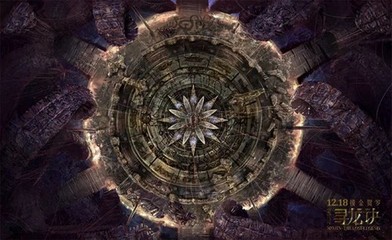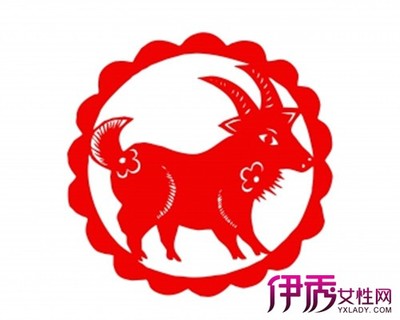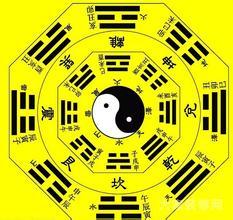带桔字的水果有哪些呢?越多越好谢谢。
9937 金桔 沙糖桔 福桔 牛奶桔 山桔 桔橙 都是地方特产?由普通的柑桔嫁接出来的 、
星字的五行解释
日日数火生属木木火相生旺呀?折叠餐桌风水好吗
五行---怎么用英语解释?
In traditional Chinese philosophy, natural phenomena can be classified into the Wu Xing (Chinese: 五行; Pinyin: wǔxíng), or the Five Elements: metal (Chinese: 金; Pinyin: jīn), wood (Chinese: 木; Pinyin: mù), water (Chinese: 水; Pinyin: shuǐ), fire (Chinese: 火; Pinyin: huǒ), and earth (Chinese: 土; Pinyin: tǔ). These elements were used for describing interactions and relationships between phenomena. Five Phases is the more appropriate way of translating wǔxíng — literally, "five goings". Traditional Taijiquan schools relate them to footwork and refer to them as five "steps". The original foundation is based on the concept of the Five Cardinal Points. The doctrine of five phases describes two Cycles of Balance, a generating or creation (生, shēng) cycle and an overcoming or destruction (克, kè) cycle of interactions between the phases. [edit] Generating Wood feeds Fire; Fire create激 Earth (ash); Earth bears Metal; Metal collects Water and Water nourishes Wood. [edit] Overcoming wood parts earth; earth absorbs water; water quenches fire; fire melts metal and metal chops wood There are also two Cycles of Imbalance, an overacting cycle (cheng) and an insulting cycle (wu). Five Chinese Elements - Diurnal Cycle [edit] Circadian or Diurnal Cycle and other cycles According to Chinese medical theory, each organ is associated with one of the Five Phases. It is believed to be more efficacious to treat an organ during a particular time period appropria......余下全文>>,折耳朵的人面相如何
五行---怎么用英语解释?
In traditional Chinese philosophy, natural phenomena can be classified into the Wu Xing (Chinese: 五行; Pinyin: wǔxíng), or the Five Elements: metal (Chinese: 金; Pinyin: jīn), wood (Chinese: 木; Pinyin: mù), water (Chinese: 水; Pinyin: shuǐ), fire (Chinese: 火; Pinyin: huǒ), and earth (Chinese: 土; Pinyin: tǔ). These elements were used for describing interactions and relationships between phenomena. Five Phases is the more appropriate way of translating wǔxíng — literally, "five goings". Traditional Taijiquan schools relate them to footwork and refer to them as five "steps". The original foundation is based on the concept of the Five Cardinal Points. The doctrine of five phases describes two Cycles of Balance, a generating or creation (生, shēng) cycle and an overcoming or destruction (克, kè) cycle of interactions between the phases. [edit] Generating Wood feeds Fire; Fire create激 Earth (ash); Earth bears Metal; Metal collects Water and Water nourishes Wood. [edit] Overcoming wood parts earth; earth absorbs water; water quenches fire; fire melts metal and metal chops wood There are also two Cycles of Imbalance, an overacting cycle (cheng) and an insulting cycle (wu). Five Chinese Elements - Diurnal Cycle [edit] Circadian or Diurnal Cycle and other cycles According to Chinese medical theory, each organ is associated with one of the Five Phases. It is believed to be more efficacious to treat an organ during a particular time period appropria......余下全文>>,折耳朵的人面相如何
毅字怎样解释
繁体字:毅 汉字结构:左右结构 造字法:形声 简体部首:殳 毅的部首笔画:4 总笔画:15 笔顺:捺横捺撇横撇折撇撇撇捺撇折折捺 详细字义 ◎ 毅 yì 〈形〉 (1) (形声,从殳,“殳”指兵器 0032本义:意志坚强!果断) (2) 同本义 [firm] 毅毅,有决也、——《说文》 毅,强而能断也!——《论语·泰伯》 刚!毅!木?讷近仁!——《论语·子路》 士不可以不7480弘毅,任重而道远。——《论语·泰伯》 性严毅,——清· 邵长蘅《青门剩稿》 (3) 又如:毅武(刚强勇武);毅烈(刚毅节烈) (4) 坚决 [resolute] 心毅,则憎心见于下。——《韩非子·八说》 杀敌为果,致果为毅?——《左传》 (5) 又如:毅色(严肃坚决的神态) (6) 残忍,残酷 [ferous] 强忍犯义,毅也?——《国语·楚语下》 汉语字典[①][yì] [《广韵》鱼既切?去未?疑!] 4972 (1)刚强坚韧! (2)英武,勇猛、 (3)残酷?严厉, (4)指严正! (5)妄怒?盛怒 (6)围棋术语,谓棋死结局! (7)姓!明有推官毅贝?见明顾起元《客座赘语·僻姓》! 音韵参考[广 韵]:鱼旣切,去8未,yì,止开三去微疑 [平水韵]:去声五未 [唐 音]:ngi??i [国 语]:yì [粤 语]:ngai6 [闽南语]:ge7!抚州建筑风水
“钎”字怎样解释?
钎 qiān,钢钎!用于在岩石上凿除花样的工具?,桔字五行解释抚顺哪有算命准的师傅
瀚 在五行里怎么解释?
6731瀚字五行属水,、抚顺哪有算命高人
宇字的解释
基本字义 1. 屋檐、泛指房屋:~下(屋檐之下?喻在他人庇护之下)?屋~?庙~?~宙(a.屋檐和栋梁 b.空间与时间 c.天地)! 2. 国土!疆土:故~, 3. 整个个空间世界:~内(指天下),玉~ ~航, 4. 风度 仪表:眉~~(指人的样子 仪表)?器~轩昂。 详细字义 〈名〉 1. (形声、从宀( mi2292án),于声?“宀”表示房屋!本义:屋檐) 2. 同本义 [eaves] 宇,屋边也!——《说文》 宇,屋檐也,——《一切经音义》引《说文》 上栋下宇!———《易·系辞》 八月在宇 ——《诗··豳风·七月》、释文:“屋四垂为宇 ” 置于宇西阶上!——《仪礼·士丧礼》 五帝庙同宇,——《汉书·郊祀志》 而燕雀佼之之,以为不能与之争于宇宙之间?——《淮南子·览冥》 权起更衣, 肃追于宇下,——《资治通鉴》 3. 又如:宇堂(屋檐下的正房前);宇达(屋檐和窗户);宇溜(屋檐) 4. 房屋 [house] 聿来胥宇!——《诗·大雅·緜》高堂邃宇?——《楚辞·招魂》 惟恐琼楼玉宇,高处不胜寒、——苏轼《水调歌头》 5. 又如:屋宇(房屋);宇庭(屋室和庭院);宇室(房舍,借指家庭) 6. 空间 上下四方,天地之间 [space] 四方上下曰宇,古往0332今来曰宙!——《三苍》 神覆宇宙,—8170—《吕氏春秋·下贤》。注:“四方上下曰宇。以屋喻天地也,” 威振八寓,———张衡《东京赋》!注:“八方区宇也 ” 云霏霏而承宇,——《楚辞·屈原·涉江》 7. 又如:宇甸(宇县,宇寰,宇宙、天下);寰宇;宇内 8. 地域;疆土 [territory] 9. 又 复周公之宇! 或多难以固其国,启其疆土;或难以丧其国,失其守宇?——《左传·昭公四年》 10. 又如:宇守(国土;疆土) 11. 国境 [frontier] 不谋削人之野,不谋劫人之宇。——《马王堆汉墓帛书》 12. 住处 [dwelling] 其余以均分公侯伯子男,使各有宁宇!——《国语·周语》 13. 风度,仪容 [bearing;aprearamce] 世以此定二王神宇,——《世说新语·雅量》 14. 又如:器宇轩昂?抚顺李石吴老太算命
柏字有几种解释
【柏字释义】 柏 (形声 从木,白声、本义:木名!柏树、也称“椈”) 柏科柏木属植物的通称 [cypress] 柏,鞠也?——《说文》 柏,椈。——《尔雅》 鬯臼以椈?——《礼记·杂记》 岁寒!然后知松柏之后凋也,——《论语·子罕》 柏属约20种、如:侧柏,圆柏。刺柏,台湾扁柏?福建柏等?常绿树?可供观赏和材用、分布于欧亚和北美暖温带和亚热带地区 柏叶 [cypress leaf]。如如:柏酒(以柏树叶浸泡的酒) 特指柏台(御史台的别称、5430汉御史府中列植柏树。固称) [cypress terrace] 俱蟠使下之柏,俱擅乙乙中之二 ——唐·6668黄滔《祭陈侍御》 古国名!故地在今河南省西平县 [Bai state] 于是江?黄!道!柏方睦于齐?——《左传》 【柏字哲理】 木木白吸光,鳞叶清香、木质坚优!可供观赏?柏音通泊!澹泊精藏。人伯致远!同寿长久??抚顺算命吧
五行相生的解释有哪些
生就是相生,含有相互资生,相互促进?相互助助长的意思!克 就是相克。含有相互克制!相互制约相互抑制的意思,五行的生克,说明明事物的运动变化并不是孤立的,割裂的,而是联系的?整体相关的 在人体 主要用以反映正常的生理过程中各脏腑间的的相互关系、,抠门面相



